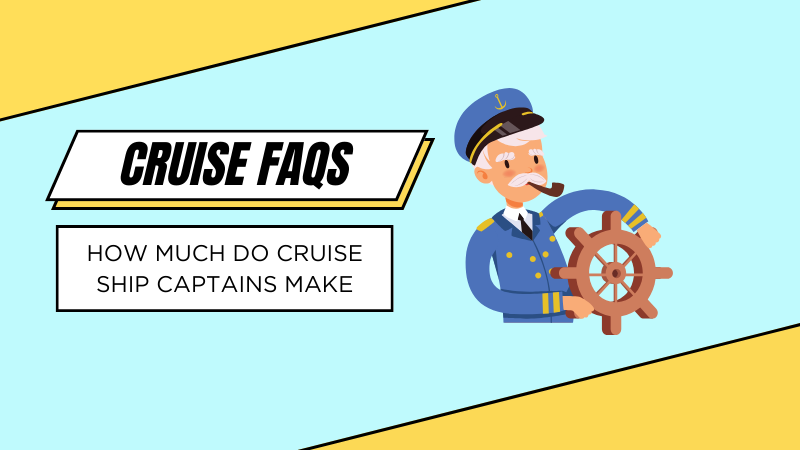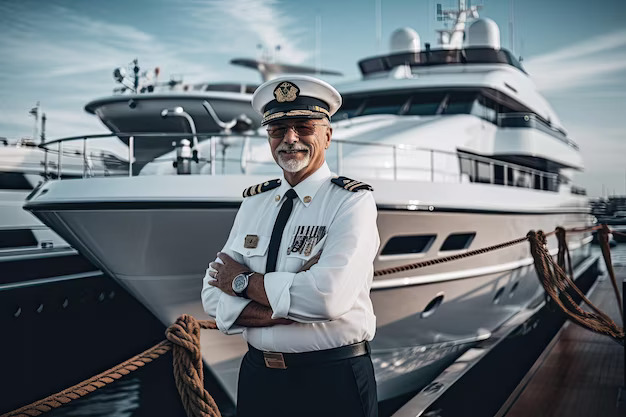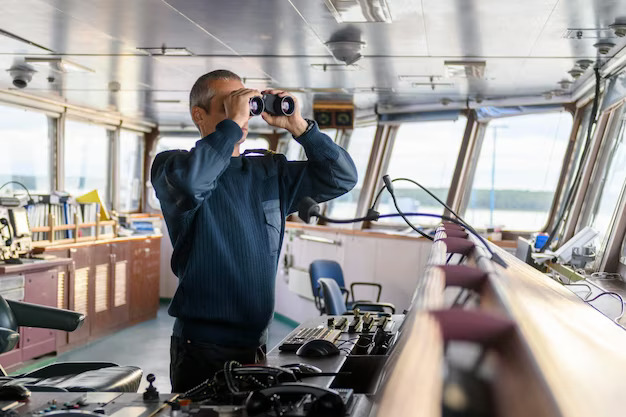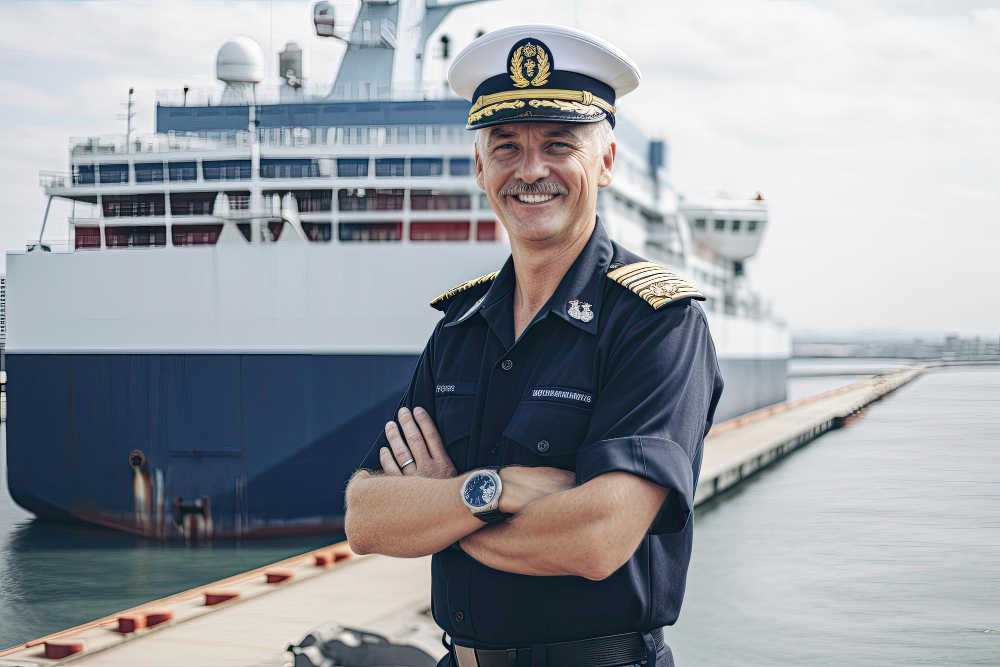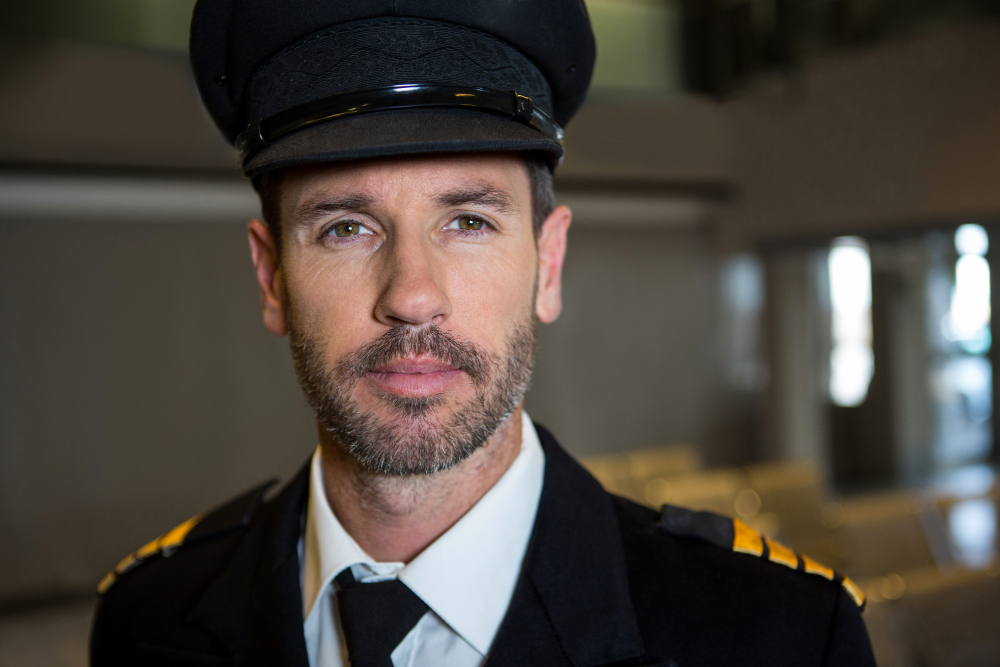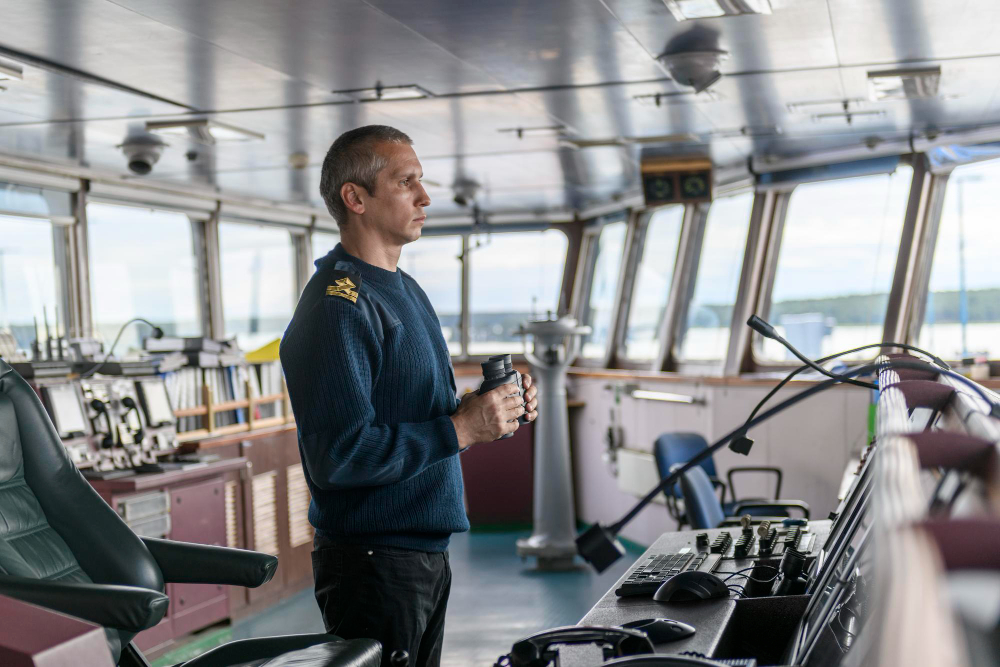The cruise industry is a vibrant and dynamic sector that blends leisure and travel in unparalleled ways. Thousands flock to colossal ships for unforgettable voyages across the world’s most breathtaking waters. However, a key figure who ensures that each journey is not only memorable but also supremely safe is the cruise ship captain. Commanding the vessel with utmost precision, cruise ship captains play an integral role in ensuring passengers’ safety, orchestrating the crew, and delivering unforgettable experiences.
This begs the question, “How much do cruise ship captains make?” To understand the remuneration of these sea-faring commanders, we’ll delve into the various elements contributing to a cruise ship captain’s salary, unraveling the intricate details of their compensation.
Who Is a Cruise Ship Captain?
A cruise ship captain is the vessel’s master, in charge of its overall safety, security, and operation. This role is multifaceted, encompassing the leadership of the crew, navigation of the ship, compliance with maritime laws, and ensuring the well-being and enjoyment of all passengers on board.
A captain’s presence is vital in orchestrating a seamless and pleasant cruise experience, blending expertise in maritime operations with a dedication to passenger service and satisfaction.
What Skills Are Required to Become a Cruise Captain?
To become a cruise captain, one must possess a diverse set of skills. These include extensive knowledge of maritime regulations and navigational equipment, the ability to act decisively and remain calm under pressure, and excellent communication and leadership abilities to manage the crew and ensure passengers’ safety and enjoyment. A deep understanding of maritime science, engineering, and technology is also paramount to proficiently operate the vessel and handle any unforeseen circumstances.
How Many Captains Are Typically Found on a Cruise Ship?
Typically, a cruise ship will have one captain who is chiefly responsible for the vessel’s overall operation. However, there is also a team of officers and crew members with specialized roles and responsibilities, like the Chief Engineer and Hotel Manager, who assist the captain and ensure smooth sailing.
These roles are pivotal, especially in larger cruise ships, where effective teamwork is crucial to address the multitude of tasks and challenges that may arise during a voyage.
How Long Do Cruise Ship Captains Work?
The work schedule of a Cruise Ship Captain can be demanding, often entailing long hours and extended periods at sea, usually 10-14 hours and sometimes up to 16 hours a day. While on duty, a captain must always be alert and ready to respond to any situation, from navigating through rough seas to addressing passengers’ needs and concerns.
Even when the ship is docked, the captain’s responsibilities continue, overseeing maintenance, safety checks, and preparations for the next voyage. Despite the intense workload, the role offers unparalleled rewards and fulfillment, steering the course for unforgettable journeys.
The Responsibilities of a Cruise Ship Captain
Embarking on a journey as a cruise ship captain means embracing a role laden with responsibilities and diverse challenges. A captain is the linchpin that holds the intricate workings of a cruise ship together, ensuring not just the safety of the passengers and crew members, but also their enjoyment and fulfillment throughout the voyage.
Their duties are vast, ranging from navigating the vessel through myriad sea conditions, and complying with a host of maritime laws, and clearance of immigration laws to attending social events and being the face of the cruise line. Each task is executed with precision, reflecting the captain’s extensive experience and unwavering commitment to the cruising experience. Balancing such myriad duties, a cruise ship captain crafts the symphony that is a perfect cruise, harmonizing every element to create unforgettable seafaring adventures.
Navigational Expertise
Navigational expertise is crucial for a cruise ship captain. It involves steering the ship accurately, avoiding obstacles, and ensuring the ship is on the right course. Mastery of using navigational equipment and an intricate knowledge of maritime regulations are indispensable to execute these tasks proficiently.
Ensuring Safety and Security
A cruise ship captain is responsible for the safety and security of everyone on board. This encompasses implementing stringent safety protocols, addressing potential terrorist threats, and ensuring the ship complies with all federal maritime authority regulations, to create a secure environment for both passengers and crew members.
Personnel Management
Managing the diverse crew members effectively is pivotal. The captain must lead the team, address their concerns, and ensure that each crew member performs their duties proficiently, contributing to the seamless functioning of the cruise ship.
Guest Relations
Balancing authority with approachability, a cruise ship captain plays a vital role in guest relations. They attend social events, interact with passengers, and address their concerns, ensuring that every guest feels valued and enjoys an unparalleled cruising experience.
Handling Emergencies
The ability to act decisively and remain calm is crucial when handling emergencies. A captain must swiftly assess situations, make informed decisions, and execute action plans to mitigate risks and protect everyone on board.
Dealing With Maintenance and Operations
Maintenance and operations are also within the captain’s purview. They oversee the ship’s maintenance, ensure operational efficiency, and work closely with the chief engineer and other key personnel, guaranteeing that every aspect of the ship is in prime condition for every voyage.
How Much Do Cruise Ship Captains Make?
When unveiling the financial aspects of a Cruise Ship Captain’s profession, it is crucial to analyze not only the average salary but also the additional perks and how this profession stands compared to other maritime roles.
Average Salary
The salary of a Cruise Ship Captain can vary depending on several factors, but according to Comparably, the average salary for this role in the United States is approximately $93,328 annually. This figure is indicative, and actual salaries can be higher or lower based on experience, the company, and the type of vessel being commanded.
Bonuses and Additional Perks
Beyond the base salary, many captains enjoy bonuses and additional perks that significantly enhance their compensation package. These benefits may include free lodging, meals, and access to the ship’s amenities. Some companies also offer performance-based bonuses, insurance benefits, and travel allowances, contributing to a more lucrative and rewarding profession.
Salary Compared to Other Maritime Jobs
When compared to other maritime jobs, a Cruise Ship Captain’s salary is generally on the higher end of the pay scale, reflecting the extensive responsibilities and expertise required for the role.
Positions like deck officers, maritime engineers, and hotel managers on a cruise ship typically have lower salaries, while the salary of a chief engineer or a master mariner in cargo ships may be comparable, depending on the company and specific responsibilities. Balancing the allure of cruising with the demands of leadership, the compensation for cruise ship captains is designed to attract and retain top maritime talent.
Factors That Influence How Much Cruise Ship Captains Make
Delving into the world of Cruise Ship Captains and their earnings, several factors come into play, impacting the overall compensation they receive.
Experience
The compensation of a Cruise Ship Captain is heavily influenced by experience. Those who have spent more years in the field and have garnered extensive experience typically have a higher earning potential. Every year spent navigating the seas, dealing with various challenges, and managing vast vessels contributes to a more refined skill set, which is often rewarded with increased remuneration.
Size and Type of Vessel
The size and luxurious quality of the cruise ship are also important factors in deciding a captain’s remuneration. Commanding larger, more luxurious vessels, equipped with sophisticated amenities and hosting a greater number of passengers, usually entails more responsibilities and thus, results in higher compensation. The complexity of operating such grand vessels demands a premium in terms of pay, reflecting the elevated level of expertise and commitment required.
Company
Different cruise lines have varying pay scales for their captains. Companies like Royal Caribbean might have a different salary structure compared to other cruise lines, influenced by their operational scale, reputation, and revenue. Some companies may provide additional perks and advantages, enhancing the entire salary package. Researching and choosing the right company is crucial for aspiring captains, as it significantly impacts their career trajectory and earning potential.
How to Become a Cruise Ship Captain
Becoming a cruise ship captain takes substantial education, training, and experience. Here’s a comprehensive guide to help aspiring cruise ship captains navigate their way through their career paths.
Educational Requirements
The journey typically begins with earning a high school diploma or its equivalent. Most cruise ship captain roles necessitate higher education, specifically in specialized fields such as maritime engineering. Obtaining a bachelor’s degree from a recognized maritime academy or a related field is crucial. It is often advantageous to pursue degree programs that provide maritime qualifications and credentials.
Obtain Necessary Certifications
Upon completing your degree, it’s crucial to obtain the required credentials. This often involves passing written competency exams and securing Coast Guard credentials. The Transportation Worker Identification Credential and the Merchant Mariner Credential are important qualifications. Always stay updated on what is necessary for the role you aspire to.
Career Path and Scope
Although not explicitly mandated, most cruise lines look favorably on captains with a master’s degree in a specialized field such as maritime science or engineering. Opt for schools that offer courses explicitly geared toward cruise ship captaincy. Excelling academically often boosts your candidacy in this competitive field.
Having obtained your degrees and credentials, turn your attention to researching potential employers. Visit their websites and job profiles to understand their opportunities and company culture. Consider locations with a higher concentration of maritime opportunities.
Gain Experience and Climb the Ranks
Initiate your maritime career with entry-level roles like a deckhand or third mate. These foundational positions are stepping stones to more advanced ranks. Utilize resources such as your university’s career services to find appropriate job placements.
Consider Further Education
While not mandatory, some choose to pursue advanced degrees or specialized courses designed for those aspiring to captaincy roles in cruise ships. The field is competitive, and having additional credentials could significantly enhance one’s prospects.
Explore Opportunities and Apply
Once the requisite experience and qualifications are acquired, the next step is to research open roles for cruise ship captains and apply strategically. Flexibility in location and a keen understanding of the specific requirements for each role are essential during this phase. Tailoring your application materials, leveraging relevant keywords, and aligning your experience with the role’s demands are crucial components of a successful application.
Remember, while journeying through the ranks, it’s crucial to continuously expand one’s knowledge, stay abreast of the latest in maritime laws, technology, and safety protocols, and adapt to the dynamic and evolving world of cruise ships. It is this combination of education, experience, adaptability, and a relentless pursuit of excellence that molds a successful cruise ship captain.
Conclusion
In conclusion, the journey to becoming a cruise ship captain is one paved with dedication, rigorous education, and extensive experience. Cruise ship captains bear significant responsibilities, encompassing navigational expertise, safety and security management, personnel management, and guest relations, amongst others.
Cruise ship captains, on average, earn around $93,328 in the US. However, salaries can significantly vary, influenced by factors like experience, the size, and type of the vessel, and the company operated for. The allure of the cruising industry isn’t just in the picturesque destinations but in the lucrative pay, bonuses, and additional perks afforded to those at the helm.
To those aspiring to embrace the waves and lead a ship, remember, that the pathway is demanding but equally rewarding. Stay informed about the industry, continue learning, and gain experience, and perhaps, you will find yourself steering one of these majestic vessels through the azure expanses.
FAQS
Who is the highest paid person on a cruise ship?
The highest-paid person on a cruise ship is typically the cruise ship captain or the master of the ship. This individual bears immense responsibilities, ensuring the safety, security, and overall smooth operation of the vessel, which justifies their substantial compensation. Salaries vary widely, depending on factors like experience, the cruise line, and the specific ship, but can exceed $100,000 annually, coupled with bonuses and perks like free accommodation and travel.
How much does a Royal Caribbean cruise ship captain make?
A Royal Caribbean cruise ship captain’s salary is a reflection of the responsibility and expertise the role demands. While the exact figures can vary, it is reported that salaries for cruise ship captains with major cruise lines like Royal Caribbean are often well like $79,432-$97,652. The amount of pay that you receive can vary depending on your level of experience, the size of the ship, and the length and type of the voyage.
How much do celebrity cruise ship captains make?
Celebrity cruise ship captains are typically well-compensated for their pivotal role and experience for about $69,425. They often earn a substantial salary, potentially at the higher end of the pay scale due to the luxury status of Celebrity Cruises. Specific earnings vary based on experience, the size and type of the vessel, and contractual agreements, but it is not uncommon for the figures to surpass $100,000 annually, along with generous perks and bonuses.
Do ship captains make good money?
Yes, ship captains, particularly those on cruise ships, usually earn good money due to the substantial responsibilities and expertise their role entails. Their income generally exceeds the national average, often reaching six figures. Several factors, such as the type and size of the vessel, the company, and the captain’s experience, influence the specific salary, bonuses, and additional benefits received.

